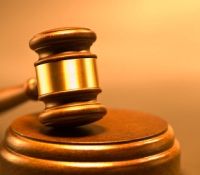

The appellant factory operator, Alcoa Manufacturing (GB) Limited, appealed against a decision upholding the respondent's claim for damages for noise-induced hearing loss.
The respondent had worked at the factory between 1963 and 1976 and claimed that his injuries were caused by the appellant's negligence in failing to carry out a noise survey to ensure he was not exposed to unsafe levels of noise.
The respondent asked the trial judge to draw inference from previous case law against the appellant, based on the fact that no noise surveys had been produced. The judge did not do so, and accepted that documents relating to the noise survey might have been lost instead of never carried out, and found that expert engineering evidence did not support the case that the respondent had been subject to wrongful levels of noise. He dismissed the claim.
On appeal the judge held the appellant was under a duty to conduct noise surveys from 1970 onwards. He held that the previous judge should have drawn inference from previous case law and that a good interpretation of the respondent's evidence would have involved accepting that he was exposed to noise throughout the working day without formal protection or warning. The judge held the expert evidence was unable to disprove that the working environment could have been the cause of his hearing loss, and allowed the appeal by the respondent.
When Alcoa Manufacturing (GB) Ltd appealed this decision, it was considered when a common-law duty to carry out noise surveys arose. There was no statutory duty to carry out noise surveys until the Noise at Work Regulations SI 1989/1790 came into force, but Ministry of Labour guidance pre-dating the Regulations gave rise to common-law duty to carry out a noise survey in certain circumstances. A common-law duty to carry out and act upon a noise survey arose in around 1973 or 1974. The judge concluded that the previous judges decision to remit the case for assessment of damages for the entire period the respondent worked at the factory, should be amended to provide that damages should be assessed for the period from 1973 or 1974 to 1976.
It was also found that there was no sufficient basis available to overturn the finding of the fact made by the original judge that there was no breach of duty on the part of the appellant, because noise surveys might have been lost. It was concluded the first judge was entitled to accept the engineering evidence and avoid resorting to inferences from case law, even if they might otherwise have been drawn.
"In future cases where it is relevant to determine whether a noise survey has been undertaken in the past it would be helpful if both parties addressed that in pre-trial questions about the existence of documents or in the evidence at trial. This would help to avoid a situation where the trial judge is left to deal with the factual finding about whether a noise survey was carried out on the basis only of submissions about lists of documents".
The appeal was allowed.